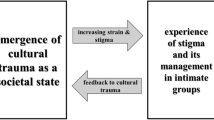Abstract
This study incorporates insights from the cognitive approach to literature into postcolonial studies for the purpose of investigating the potential of the ongoing dialogue between these two fields. It analyzes the cognitive process of categorization intricate in the classification of people according to race, colour and culture, revealing how Fanon’s idea of reciprocal consciousness challenges the fixity of borders between categories and goes with the nature of the human mind that is capable of adapting to and realizing the changeability and adjustability of categorical schemas. Thus, the activation of reciprocal self-consciousness generates intercategorical coexistence, pointing out the obsoleteness of colonially categorical mentality sustained by xenophobia. According to the resilient nature of the human mind, this paper proves that categories of cultures and race are overlapping and fuzzy, so artificial borders between them are inconsistent and penetrable allowing mobility and change in terms of membership and belonging. This study tackles Mohsin Hamid’s Exit West (2017) in the light of Fanon’s treatment of the Hegelian theory of reciprocal self-consciousness, exploring possible forms of intersubjectivity, cultural fusion, acculturation and means of transcendental self-representation as illustrated in characters who are capable of penetrating the categorical fixity of cultural difference or the self and the other.


Similar content being viewed by others
References
Adey, P., Bissell, D., Hannam, K., Merriman, P., & Sheller, M. (Eds.). (2014). The Routledge handbook of mobilities. London: Routledge.
Bhabha, H. (1994). The location of culture. New York: Routledge.
Crane, M. (2015). Cognitive historicism: Intuition in early modern thought. In L. Zunshine (Ed.), The Oxford handbook of cognitive literary studies (pp. 15–33). New York: Oxford University Press.
Dirven, R. (2005). Major strands in cognitive linguistics. In F. Mendoza & M. Peña (Eds.), Cognitive linguistics: Internal dynamics and interdisciplinary interaction (pp. 17–68). Germany: Walter de Gruyter.
Fanon, F. (2008 [1952]). Black skin, white masks. Trans. by Charle Markmann. London: Pluto Press.
Hamid, M. (2015). Discontents and its civilization. New York: Penguin.
Hamid, M. (2017a). Exit West. New York: Riverhead Books.
Hamid, M. (2017b). Magical novel ‘Exit West’ explores what makes refugees leave home. Interview by Jeffrey Brown. PBS, Public Broadcasting Service. Retrieved Mar 16, from www.pbs.org/newshour/show/magical-novel-exit-west-explores-makes-refugees-leave-home.
Hannam, K., Sheller, M., & Urry, J. (2006). Editorial: Mobilities, immobilities and moorings. Mobilities, 1(1), 1–22. https://doi.org/10.1080/17450100500489189.
Hegel, G. (1977 [1807]). Phenomenology of spirit. Trans. by A. V. Miller. New York: Oxford University Press.
Hogan, P. (2015). The psychology of colonialism and postcolonialism: Cognitive approaches to identity and empathy. In L. Zunshine (Ed.), The Oxford handbook of cognitive literary studies (pp. 15–33). New York: Oxford University Press.
Lagji, A. (2018). Waiting in motion: Mapping postcolonial fiction, new mobilities, and migration through Mohsin Hamid’s Exit West. Mobilities, 14(2), 1–15. https://doi.org/10.1080/17450101.2018.1533684.
Lakoff, G. (1987). Women, fire, and dangerous things: What categories reveal about the mind. Chicago: University of Chicago Press.
Marlowe, J. (2018). Belonging and transnational refugee settlement. London: Routledge.
Marston, S., Jones, J., III, & Woodward, K. (2005). Human geography without scale. Transactions of the Institute of British Geographers, 30, 416–432. https://doi.org/10.1111/j.1475-5661.2005.00180.x.
Rosch, E. (2009). Categorization. In D. Sandra, J. Ostman, & J. Verschueren (Eds.), Cognition and pragmatics (pp. 42–52). Philadelphia: John Benjamins.
Said, E. (1979). Orientalism. New York: Vintage Books.
Said, E. (1994). Culture and imperialism. New York: Ventage Books.
Sandhu, S. (2017). Exit West by Mohsin Hamid—magical vision of the refugee crisis. The Guardian. Retrieved Mar 12, from https://www.theguardian.com/books/2017/mar/12/exit-west-mohsin-hamid-review-refugee-crisis
Sethi, R. (2011). The politics of postcolonialism: Empire, nation and resistance. London: Pluto Press.
Sorensen, D. (2018). Editor’s introduction: Alternative geographic mappings for the twenty-first century. In D. Sorensen (Ed.), Territories and trajectories: Culture in circulation (pp. 13–31). Durham: Duke University Press.
Spolsky, E. (2010). Making ‘quite anew’: Brain modularity and creativity. In L. Zunshine (Ed.), Introduction to cognitive cultural studies (pp. 84–102). Baltimore: John Hopkins University Press.
Spolsky, E. (2015). The contracts of fiction: Cognition, culture, community. New York: Oxford University Press.
Young, R. (1995). Colonial desire: Hybridity in theory, culture and race. New York: Routledge.
Young, R. (2016). Preface to the anniversary edition. In Postcolonialism: An historical introduction (pp. ix–xxv). Hoboken: Wiley
Author information
Authors and Affiliations
Corresponding author
Additional information
Publisher's Note
Springer Nature remains neutral with regard to jurisdictional claims in published maps and institutional affiliations.
Rights and permissions
About this article
Cite this article
Karam, K.M. Reciprocal Self-consciousness as an Antidote to the Fixity of Categorical Borders in Mohsin Hamid’s Exit West. Neophilologus 104, 301–319 (2020). https://doi.org/10.1007/s11061-020-09639-5
Published:
Issue Date:
DOI: https://doi.org/10.1007/s11061-020-09639-5




